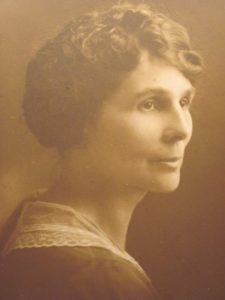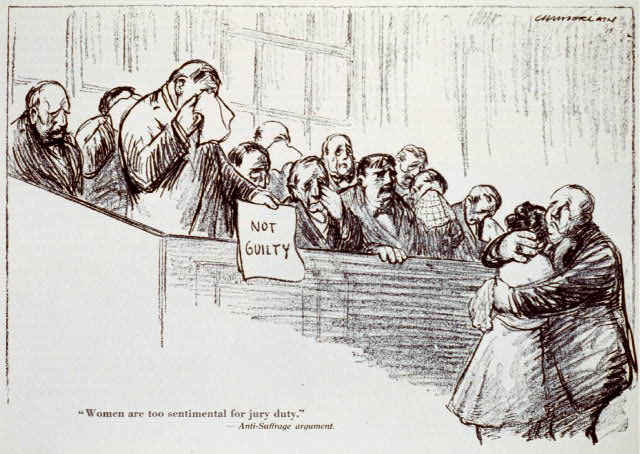By Patricia Smedley Buxton, Ed.D.
In 1925, at a time when women were not yet permitted to take a seat in a Connecticut jury box, State Representative Elizabeth W. Coe of Waterbury argued that since women had been given the right to vote, they should be granted the right to serve on jury panels. Though similar bills had already been introduced and failed multiple times, Coe introduced a new bill (House Bill 429: An Act Concerning Jury Service for Women) in an attempt to convince legislators that it should be the duty of women to serve on Connecticut juries.
House Bill 429 An Act Concerning Jury Service for Women
More than 150 women from all parts of Connecticut joined several female legislators to support Coe as she argued before the judiciary committee in 1925. The primary objections to the bill were that jury duty was too arduous and fatiguing for women and that the female sex was far too temperamental to serve on a jury. In response, Coe asserted men could be just as emotional as women and argued that women worked longer hours in their professions and housework than the state required of jurors.
Coe pointed to the willingness of women to serve and, predicting the eventual granting of that right, argued in favor of doing it sooner than later. Despite Coe’s valiant effort, however, the legislature defeated House Bill 429 on April 23, 1925, in a 115 to 60 vote. (Interestingly this was not the only jury bill brought before the Legislature that year. The Anti-Professional Jury Bill passed, stipulating that any man who served on a jury could not serve again for a period of five years. The law effectively placed responsibility of jury service on a wider group of male citizens.)
Elizabeth W. Coe and the League of Women Voters

Unknown, “Elizabeth W. Coe.” Digital File from Black and White Film Photograph, n.d., Author’s Personal Collection, Tolland County, CT.
A year after the defeat of her bill in the state legislature, Coe received a unanimous nomination for Representative at the Republican Town convention in Waterbury but lost the election to democratic candidate Joseph T. St. Louis. Later that year, in December, she became Women committee chair at the League of Women Voters’ state board meeting, charged with getting the Jury Service for Women Bill through the state legislature.
On January 19, 1927, Coe spoke at the Hartford County League of Women Voters meeting. In her speech “Jury Service for Women,” Coe addressed nearly 150 attendees at the Hotel Bond in Hartford. League members, guests, senators, and representatives from Hartford County listened as Coe proclaimed:
When women were granted the suffrage, it was thought by them that they were to be given all the privileges and obligations which commonly go with it. They were informed of their error by the attorney general of this state when he gave a decision which ruled that women could not serve as jurors. Since that ruling the women have fought to have the Legislature amend the jury law to include women jurors. So far, the fight has been encouraging, but women continue to be rejected.
The remedy lies in our own hands, since the key to the solution of the problem was gained when the law granted women suffrage. If men legislators continue to refuse our requests to be of service to our community, then pressure may be exerted where it will count most. We will be given what we want when the men realize that their political careers are jeopardized by their refusal in the matter.
Coe worked to debunk the argument that a women’s place was anywhere but in a courtroom, where lawyers and witnesses relayed sordid stories; knowing very well that women stenographers already heard these tales. She urged attendees to flood their representatives with messages demanding women be allowed on juries and reminded all that the ballot was a powerful weapon in the fight to change the minds of those who stubbornly continued their opposition.
Despite the efforts of Coe and others, a Senate roll call vote defeated the League of Women Voters’ Jury Service bill 29 to 3 on March 23, 1927. Over the next several years Coe went on to speak in favor of similar bills at various events across Connecticut, but it was not until March 17, 1937, when the Connecticut General Assembly finally passed a bill allowing women to serve on juries–House Bill 39:The Act Concerning Jury Service for Women. The Senate approved the bill nearly a month later and Governor Wilbur L. Cross signed it on April 28, 1937, a full 12 years after Coe first demanded a women’s right of jury service.
Dr. Buxton is assistant professor of education at the University of Bridgeport in the College of Engineering, Business and Education and the Great-granddaughter of Elizabeth Whitman Coe.









